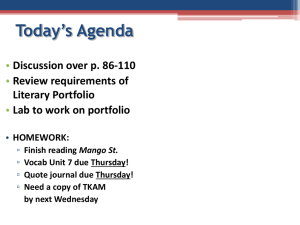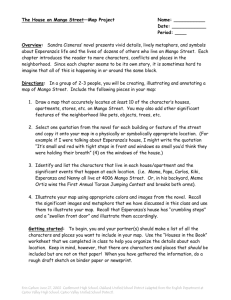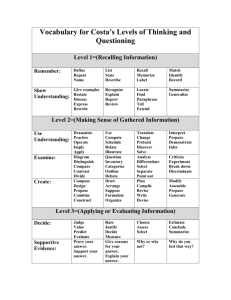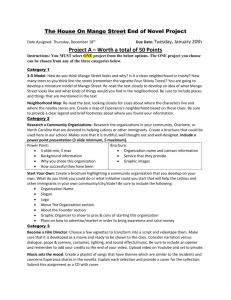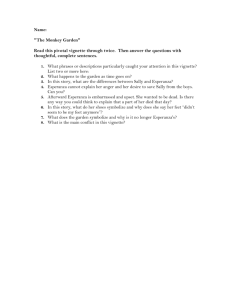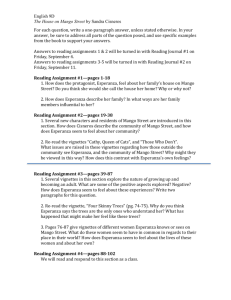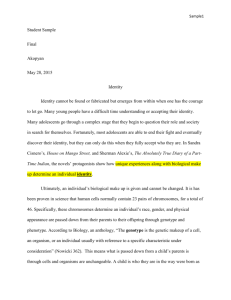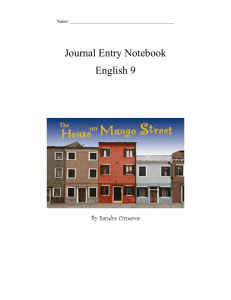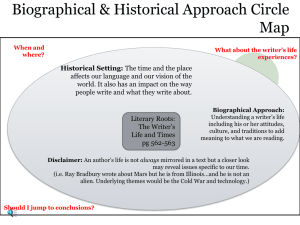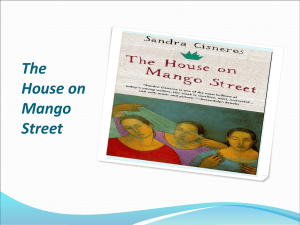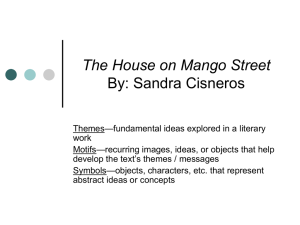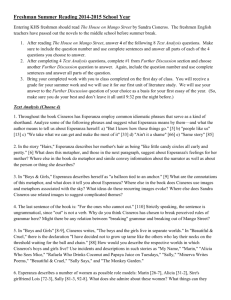the house on mango street project
advertisement
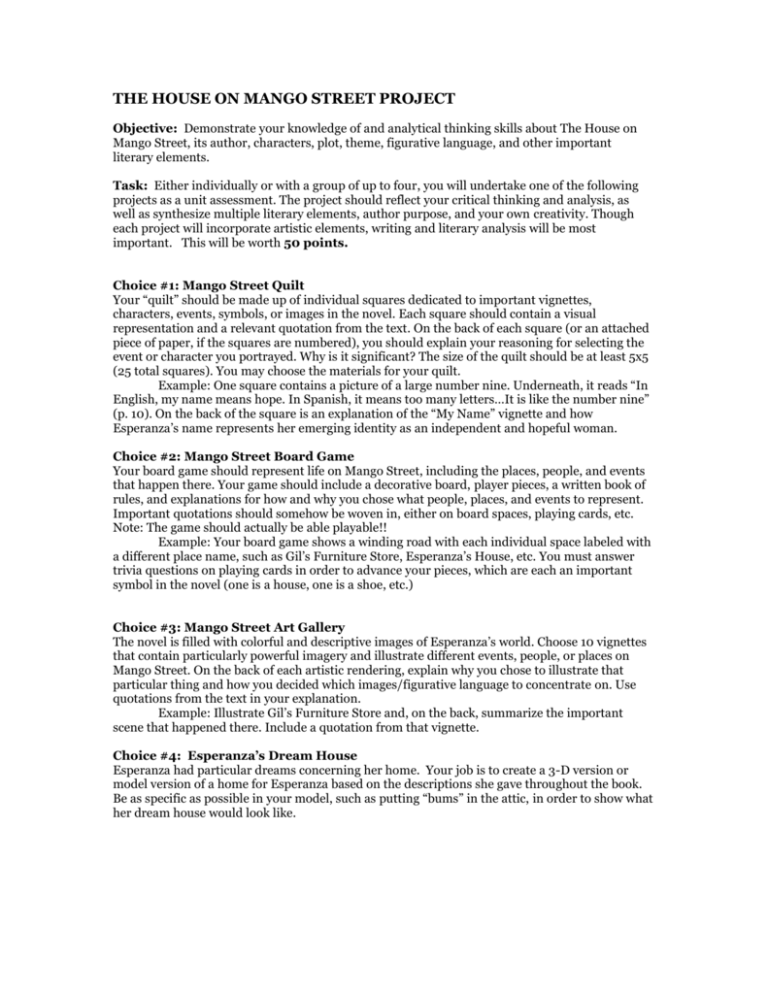
THE HOUSE ON MANGO STREET PROJECT Objective: Demonstrate your knowledge of and analytical thinking skills about The House on Mango Street, its author, characters, plot, theme, figurative language, and other important literary elements. Task: Either individually or with a group of up to four, you will undertake one of the following projects as a unit assessment. The project should reflect your critical thinking and analysis, as well as synthesize multiple literary elements, author purpose, and your own creativity. Though each project will incorporate artistic elements, writing and literary analysis will be most important. This will be worth 50 points. Choice #1: Mango Street Quilt Your “quilt” should be made up of individual squares dedicated to important vignettes, characters, events, symbols, or images in the novel. Each square should contain a visual representation and a relevant quotation from the text. On the back of each square (or an attached piece of paper, if the squares are numbered), you should explain your reasoning for selecting the event or character you portrayed. Why is it significant? The size of the quilt should be at least 5x5 (25 total squares). You may choose the materials for your quilt. Example: One square contains a picture of a large number nine. Underneath, it reads “In English, my name means hope. In Spanish, it means too many letters…It is like the number nine” (p. 10). On the back of the square is an explanation of the “My Name” vignette and how Esperanza’s name represents her emerging identity as an independent and hopeful woman. Choice #2: Mango Street Board Game Your board game should represent life on Mango Street, including the places, people, and events that happen there. Your game should include a decorative board, player pieces, a written book of rules, and explanations for how and why you chose what people, places, and events to represent. Important quotations should somehow be woven in, either on board spaces, playing cards, etc. Note: The game should actually be able playable!! Example: Your board game shows a winding road with each individual space labeled with a different place name, such as Gil’s Furniture Store, Esperanza’s House, etc. You must answer trivia questions on playing cards in order to advance your pieces, which are each an important symbol in the novel (one is a house, one is a shoe, etc.) Choice #3: Mango Street Art Gallery The novel is filled with colorful and descriptive images of Esperanza’s world. Choose 10 vignettes that contain particularly powerful imagery and illustrate different events, people, or places on Mango Street. On the back of each artistic rendering, explain why you chose to illustrate that particular thing and how you decided which images/figurative language to concentrate on. Use quotations from the text in your explanation. Example: Illustrate Gil’s Furniture Store and, on the back, summarize the important scene that happened there. Include a quotation from that vignette. Choice #4: Esperanza’s Dream House Esperanza had particular dreams concerning her home. Your job is to create a 3-D version or model version of a home for Esperanza based on the descriptions she gave throughout the book. Be as specific as possible in your model, such as putting “bums” in the attic, in order to show what her dream house would look like.
